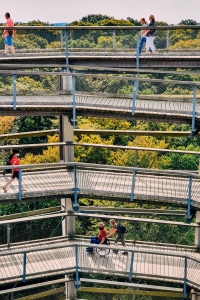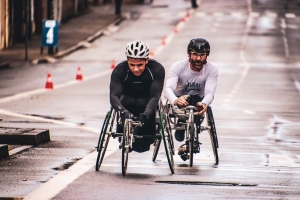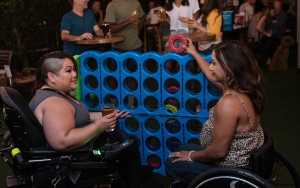Accessible Tourism – Tourism for All.
The holiday is the moment of recreation and relaxation par excellence, but for those who experience a situation of disability or temporary discomfort that limits it in mobility may face more than one obstacle that makes the “Inaccessible Tourism“.

“I dream of seeing people with disabilities travel and move freely around the world, find every tourist destination accessible […] enter a travel agency, ask for a holiday to any destination and receive as an answer: sorry, but all accessible rooms are already booked for the coming months! Maybe I can’t go on vacation but I would be happy because we will finally have a Tourism For All”.
Roberto Romeo – President ANGLAT (Associazione Nazionale Guida Legislazione Andicappati Trasporti)
Accessible Tourism can be defined as the set of products and services of the entire tourist service chain that are designed for everyone and without barriers, allowing customers with special access requests, including mobility, sight, hearing and cognitive dimension, to enjoy the holiday and free time without difficulties or obstacles independently and with equity and dignity through the availability of products, services and tourist environments universally studied.

Also known as Tourism for All, Inclusive Tourism and Tourism without barriers is enterprise and not social assistance, because the person with disabilities is a tourist, a customer and a guest just like others.
In the World more than 1 billion people live with a disability.
The United Nations estimates that the figure is 2 billion, including family members and assistants.
To meet the demands of tourists with special needs, in addition to eliminating architectural barriers in individual structures, it is necessary to design a hospitable system that allows you to live a complete holiday experience.

What does a service or facility need to be accessible?
- When the relevant information is accessible, it is therefore easily available, understandable and effective.
- When they are easily accessible and fully usable once reached.
- When the staff working there is prepared to respond to various types of needs.
- When they are inserted in an accessible “net” (hotels, means of transport, restaurants, places of interest in the surroundings).
The goal of Tourism for All is to allow all people to live a travel experience as independently as possible and with the opportunity to know new realities.
It aims to remove any cultural, architectural and communication barriers and to offer superior experiences for the entire society.

